|
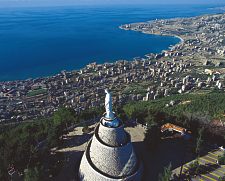
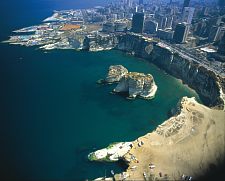
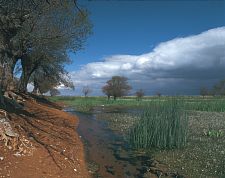
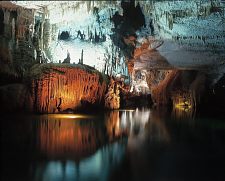
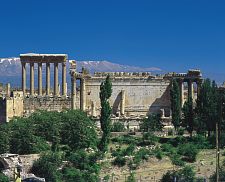
| |
Hezbollah - Israel War 2006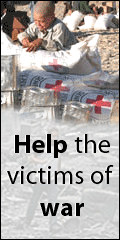
UNSC RESOLUTION 1701, August 11, 2006
PM Siniora Seven Points Plan
UNSC DRAFT RESOLUTION
FOR FULL CESSATION OF HOSTILITIES August 5, 2006
CDL Declaration -- July 25,2006 |
ROADMAP TO NORMALIZATION
The 2006 Hezbollah - Israel conflict refers to a series of
ongoing military actions and clashes in northern Israel and Lebanon between
Hezbollah's armed wing and the Israel Defense Forces (IDF), Israeli airstrikes
on Lebanon, and Hezbollah's rocket attacks on northern Israel.

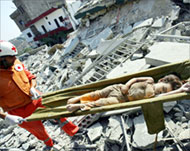
THE ISRAELI HOLOCAUST IN LEBANON
CONTINUES
QANA: 37 children killed in a shelter by an Israeli bomb
More than 64 civilians, at least 37 of them children,
have been killed in a town in Qana, south Lebanon, in the deadliest
Israeli strike of the conflict so far.
Displaced families had been sheltering in the basement of a house in
Qana, which was crushed after a direct hit by a US-made bunker buster
bomb that targeted the shelter. Qana was the subject of a similar
holocaust in 1996.
How can we stand by and allow this to go on?
A Vision
of Hell
Humanitarian Appeal! Enough is Enough! Stop this
massacre!
SPARE CIVILIANS LIVES!
 
Introduction
On 12 July 2006 Hezbollah initiated "Operation Truthful Promise", resulting in
the capture of two Israeli soldiers to exchange them for three Lebanese
prisoners held by Israel, and the killing of eight Israeli soldiers and the
wounding of twenty more. Israel then responded with Operation Just Reward, later
renamed Operation Change of Direction. Israel's strike has included massive
bombing raids by the Israeli Air Force (IAF), an air and Israeli Sea Corps naval
blockade of Lebanon (especially southern Lebanon and Beirut), a force of tanks
and armored personnel carriers, and a large incursion into southern Lebanon by
IDF ground troops. Meanwhile, Hezbollah has engaged in artillery rocket
bombardment of Israel's northern cities and towns, including Haifa.
The Lebanese government has disavowed Hezbollah's actions while urgently calling
for international peacemakers to end the conflict by enforcing an immediate
ceasefire.
The conflict has killed many civilians, caused widespread damage, displaced many
people and disrupted normal life across most of Lebanon and northern Israel.
Both sides' attacks on civilian population centers and infrastructure have drawn
sharp criticism internationally. Some call the Israeli response
"disproportionate violence".
In the span of 3 weeks, it is estimated that the Israeli Army
has dropped more than 3 Kilo Tons of bombs on Lebanese cities throughout the
country: in the South, North, Bekaa Valley and Mount Lebanon. The Israeli
attacks have destroyed civilian infrastructure in Lebanon, including Beirut
International Airport, all major bridges connecting Lebanese towns,
communication infrastructure, media outlets in addition to complete destruction
of residential neighborhoods in South Lebanon and the the Southern Suburb of
Beirut.
The human toll stands so far at more than 600 Lebanese civilians killed, 3320
physically wounded, more than 600,000 displaced, and a humungous yet an unknown
number of emotionally traumatized civilians particularly children.
Actions
Beginning of conflict
At 9:05 AM local time on 12 July 2006 a ground contingent of Hezbollah militants
attacked two Israeli armored Humvees on a routine patrol along the
Israel-Lebanon border near the Israeli village of Zar'it with anti-tank rockets,
abducting two Israeli soldiers, and killing three. Five others were killed later
on the Lebanese side of the border on 12 July during a mission to rescue the two
captured soldiers. According to the Lebanese police force, the Israeli soldiers
were attacked and captured on the Lebanese side of the border on 12 July during
a mission to infiltrate the Lebanese town of Ayta al-Sha`b.
The IDF confirmed the capture of the two Israeli soldiers on 13 July and
identified them as Ehud Goldwasser and Eldad Regev, both reservists who were on
their last day of operational duty.
Hezbollah's attack was named after a "promise" by its leader Sheikh Hassan
Nasrallah to capture Israeli soldiers and swap them for Samir Kuntar and other
Lebanese prisoners held by Israel.
Hezbollah released a statement saying "Implementing our promise to free Arab
prisoners in Israeli jails, our strugglers have captured two Israeli soldiers in
southern Lebanon". Later on, Sayyid Hassan Nasrallah declared that "No military
operation will return them… The prisoners will not be returned except through
one way: indirect negotiations and a trade of prisoners."
Israeli response
According to the Israeli newspaper Haaretz, Israel responded
within 2 hours
"[A] force of tanks and armored personnel carriers was immediately sent into
Lebanon in hot pursuit. It was during this pursuit, at about 11:00 A.M. . . .
[a] Merkava tank drove over a powerful bomb, containing an estimated 200 to 300
kilograms (440–660 Lb) of explosives, about 70 meters (230 ft) north of the
border fence. The tank was almost completely destroyed, and all four crew
members were killed instantly. Over the next several hours, IDF soldiers waged a
fierce fight against Hezbollah gunmen . . . During the course of this battle, at
about 3:00 P.M., another soldier was killed and two were lightly wounded."
Israel's chief of staff, Lt. Gen. Dan Halutz, told Israel's Channel 10, "If the
soldiers are not returned, we will turn Lebanon's clock back 20 years." Retired
Israeli army Col. Gal Luft, a former commander in the town of Ramallah, said:
"Israel is attempting to create a rift between the Lebanese
population and Hezbollah supporters by exacting a heavy price from the elite
in Beirut. The message is: If you want your air conditioning to work and if
you want to be able to fly to Paris for shopping, you must pull your head out
of the sand and take action toward shutting down Hezbollah-land."
Prime Minister of Israel Ehud Olmert declared the attack by
Hezbollah’s military wing an “act of war”, and promised Lebanon a “very painful
and far-reaching response.” Israeli Defense Minister Amir Peretz also said that
“the State of Israel sees itself free to use all measures that it finds it
needs, and the Israeli Forces have been given orders in that direction.”
Israel said it held the Beirut government responsible for the
attack, but Prime Minister Fuad Siniora denied any knowledge of the raid and
stated that he did not condone it. An emergency meeting of the Lebanese
government reaffirmed this position.
Early on 13 July 2006 Israel sent IDF jets to bomb Lebanon's international
airport near Beirut, forcing its closure and diverting its arriving flights to
Cyprus. Israel is now imposing an air and sea blockade on Lebanon, and has
bombed the roads connecting Lebanon with Syria.
Hezbollah
rocket campaign
On 14 July, following Israeli bombing raids on Lebanon that killed 60 civilians
Nasrallah said, addressing Israel: "You wanted an open war, and we are heading
for an open war. We are ready for it."
After the Israeli initial response, Hezbollah declared an all-out military
alert, and said it had 13,000 rockets capable of hitting towns and installations
far into northern Israel. As a result, Defense Minister Peretz told commanders
to prepare civil defense plans and many of the nearly 1,000,000 civilians living
in Northern Israel have been sent to bomb shelters or fled their homes to other
parts of the country. Hezbollah continued to fire hundreds of Katyusha rockets
into northern Israel's towns and cities, including Nahariya, Safed, Hatzor
HaGlilit, Rosh Pina, Kiryat Shmona, and Karmiel, and numerous small agricultural
villages.
Targeting of civilian areas
The alleged targeting of civilian areas in Israel and Lebanon by
combatants on both sides has figured prominently in the conflict. A vast
majority of the hundreds of Lebanese casualties have been civilians, including
women and children, whereas around one-third (18 civilians out of 51 dead) of
Israeli casualties have been civilians.
UN humanitarian chief Jan Egeland, while calling Israel's offensive
"disproportionate" and "a violation of international humanitarian law", also
accused Hezbollah of "cowardly blending" among Lebanese civilians and causing
the deaths of hundreds during two weeks of cross-border conflict with Israel.
Casualties
Lebanese: According to various media, between 481 and 750 people are
reported dead. Additionally, there have been between 500 and 3200 people wounded, and over 800,000 have been made refugees, with an unknown number of
missing civilians in the south. On 28 July Lebanese Health Minister Mohammad
Khalifeh announced that hospitals in Lebanon had received 401 dead Lebanese
people since 12 July. He also reportedly said: "On top of those victims, there
are 150 to 200 bodies still under the rubble. We have not been able to pull them
out because the areas they died in are still under fire".
wounded, and over 800,000 have been made refugees, with an unknown number of
missing civilians in the south. On 28 July Lebanese Health Minister Mohammad
Khalifeh announced that hospitals in Lebanon had received 401 dead Lebanese
people since 12 July. He also reportedly said: "On top of those victims, there
are 150 to 200 bodies still under the rubble. We have not been able to pull them
out because the areas they died in are still under fire".
Hezbollah acknowledges 49 killed. IDF Chief of Staff Lt. General Dan Halutz has
claimed that close to 100 Hezbollah fighters have been killed as of 22 July, in
land fighting in South Lebanon. IDF claimed the killing of more than 300
Hezbollah fighters as of August 1, offering a comprehensive list of those
killed.
Israeli: 36 Israeli soldiers have been killed (including
one pilot, killed in a collision between two helicopters, and two in another
helicopter crash, also 4 servicemen were killed after INS Hanit was hit), and
129 more wounded.
20 civilians have been killed, while another 418 civilians were treated in
hospitals, 19 of whom were seriously injured, and another 875 treated for shock.
Many civilians have left their homes in northern Israel and went south. Some
Israeli cities and villages near the Israeli-Lebanese border have been deserted,
such as Kiryat Shmona and Nahariya, from fear of rockets and mortar fire.
Environmental
consequences of attacks
IDF strikes on the Jiyeh power plant in Lebanon on 13 July and 15 July caused
25,000 tons of oil to spill into the Mediterranean and constitutes an environmental disaster for the region. At present an oil slick covers 80km of
Lebanon's 200km coastline. The slick is reportedly causing breathing problems,
killing fish, and threatening the habitat of the endangered green sea turtle.
environmental disaster for the region. At present an oil slick covers 80km of
Lebanon's 200km coastline. The slick is reportedly causing breathing problems,
killing fish, and threatening the habitat of the endangered green sea turtle.
The IDF has been criticized for its use of depleted uranium warheads (e.g.,
GBU-28 "Bunker Buster" munitions which is delivered by U.S. during the conflict
, armor-piercing artillery and sabot shells) because of their indiscriminate
nature and resulting toxic environmental contamination. GBU-28 munitions are in
use by the IDF in Lebanon against infrastructure which the IDF claim houses
Hezbollah.
BBC reported that Hezbollah rockets have caused some forest
fires inside Northern Israel.
Position of Lebanon
While Israel holds the Lebanese government responsible for the Hezbollah attacks
due to their failure to implement Resolution 1559 calling on them to disarm
Hezbollah, Lebanon disavows the Hezbollah raids and states it does not condone
them. An emergency meeting of the Lebanese government reaffirmed this position.
Almost immediately after hostilities began, Lebanon's Prime Minister Fouad
Siniora called for a ceasefire. On 14 July, following a phone call between
Siniora and President Bush, the Prime Minister’s office issued the statement
that “Prime Minister Siniora called on President Bush to exert all his efforts
on Israel to stop its aggression on Lebanon, reach a comprehensive ceasefire and
lift its blockade.”
The next day, in a televised message to the Lebanese people, and afterwards in
an interview with CNN, Siniora said “We call for an immediate ceasefire backed
by the United Nations.
Reaction Around the World
International reactions to the conflict have included
widespread concern over current damage and over the possible escalation of the
crisis, as well as mixed support and criticism of both Hezbollah and Israel.
A number of nations, including the United States, United Kingdom, Germany and
Canada, have asserted Israel's right to self-defense. Further, the United States
authorized Israel's request for the expedited processing and shipment of
precision-guided bombs to Israel. The United States did not announce the
shipment publicly.
Neighboring Middle Eastern nations have been split in their response. Iran,
Syria and Yemen have voiced strong support for Hezbollah, and the Arab League
has issued a statement condemning Israel's response. By contrast, Saudi Arabia,
Egypt, and Jordan criticized Hezbollah's actions, as well as Iran and Syria for
extending support to the organization, although they are under pressure to
change their stance.
For Opinions and Analyses
CLICK HERE.
|